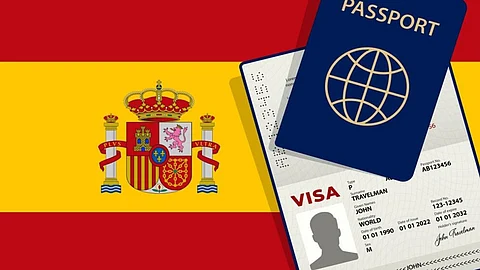

Spain formally rolled out its much-awaited Digital Nomad Visa, which presents a new chance for non-EU foreign nationals to stay and work remotely from the comfort of Spanish shores.
This new visa will seek to attract remote workers, freelancers, and digital professionals who work for or are contractually hired by firms based elsewhere outside Spain, as part of the general strategy of the country to establish a new economy and open its doors to foreign talent in a post-pandemic digital age.
The Digital Nomad Visa will make eligible applicants qualify to live legally in Spain for an initial term of a maximum of one year, with the right to renew it.
It also extends to members of one's immediate family, so it is a good alternative for freelancers who would also like to move with their spouse, dependents, or dependent relatives.
Applicants should either have a suitable university or postgraduate degree or show they possess at least three years of appropriate working experience in their line of work. Additionally, applicants should also have had a professional working relationship with their immediate foreign employer or customers for at least three months before application.
In order to qualify, one is required to establish that he or she is employed full-time or mainly by foreign-based businesses. Self-employed persons can work for Spanish firms, subject to the condition that such activities do not exceed 20% of their overall workload.
Spouses and unmarried partners, as well as dependent children, and even dependent parents or relatives, can join the principal applicant on the same visa, emphasizing Spain's drive to welcome long-term far-off residents.
Visa fees vary according to the nationality of the applicant. Indian nationals pay an application fee of approximately ₹8,000. Nationalities from countries like the United States of America, United Kingdom of Great Britain and Ireland, Canada, Australia, and Bangladesh could be levied differently based on bilateral agreements.
All charges are required to be settled when submitting the application, and the applicants should ensure they refer to the latest charges and terms available in the closest Spanish consulate or BLS International Visa Centre.
Financial security is an important requirement. The applicants should have a minimum of 200% of Spain's minimum monthly wage, which in 2025 is around €2,520 per month. For every extra family member covered in the application, the highest finance rises by 75% for the first one and 25% for the rest. A professional or educational evidence is also a requirement, either in the form of a reputable business school or university degree or as proof of appropriate work experience of more than three years.
The forms must be handed in in person at authorized BLS centres or by a legally representative. Spanish authorities should issue a decision within 10 working days, although this is delayed if further paperwork or an interview is needed. The visa is also used as a residence permit, and the holder does not need to have a separate residence card, although can claim one upon arrival.
With this visa, Spain becomes one of the front-runners among nations embracing the new remote work culture by creating flexible but secure legal alternatives for remote workers and thereby becoming one of the most attractive destinations in Europe for international talent.